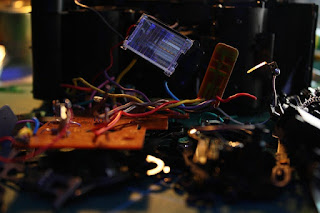Compassion is a theme for me. It is what I aspire to, a guideline for living my life. I'm not always good at it. And I'm consciously exploring more and better ways of being compassionate. Recently I was chided for being too easy on haters. I said we need to consider that their hatefulness is a symptom of their inner woundedness and we'd best address that before attacking their behavior.
But I also am aware that some kinds of help are not at all helpful. In fact, in some instances it can create an unhealthy dependency that leaves wounds of its own. So, how we give in ways that are most helpful?
Marvin Olasky, author of The Tragedy of American Compassion. says that for any help to be truly helpful it must have three elements:
- It must "challenge and equip people to participate actively in permanently solving their own problems."
- It mus recognize that poverty is not fundamentally a financial problem but is rooted in a spiritual brokenness. This is what creates generational poverty. "Effective compassion will address the source, not just the symptom."
- The help must be personal, administered so as to recognize the dignity of all people. Personal dignity and relational integrity needs to be restored. People are always in relationship with other. That broken relationship, of one kind or another, is most often a contributing cause of poverty.
Impersonal charity does little to lift a person's dignity. Put a face on the gift so that the recipient knows there is at least that one person who wants to lift them up, who acknowleges their person-hood.
While I do still donate money to some causes, because it costs money to raise awareness of the need. I much prefer funding that is personalized. Perhaps that is why there is currently a surge in sites like GoFundMe that give the donor a personal view of the need.
I, personally, like to donate to KIVA. "Kiva is an international nonprofit, founded in 2005 and based in San Francisco, with a mission to connect people through lending to alleviate poverty." They celebrate and support people to create a better future for themselves, their families, and their communities. They fund people to empower them to support themselves.
What you contribute is a loan, not a donation. It is paid back by the recipient. You can choose what part of the world you want to contribute to and what kind of endeavor you want to support. And "when a Kiva loan enables someone to grow a business and create opportunity for themselves, it creates opportunite for others as well. That ripple effect can shape the future for a family or an entire community.
I also like to contribute to educational opportunities for those who may not have the financial ability to pursue their education. Education is an investment that empowers people to make a better future. We support Native American colleges as a way of empowering American Indian youth to rise above the poverty and dependence created by the reservation system.
Even one of my own small personal gift is to occasionally purchas quilt batting for a handful of women on an Indian Reservation who make quilts to sell to help support themselves and their families. In the past I've enlisted friends to help me buy winter wear for American Indian children on the Rose Bud Reservation to enable them to go to school in the bitter cold winters of S. Dakota. I do these things through personal relationships I have developed with people on the rez. They know that there is someone named Lucinda who cares about them. It is personal.
Of course, there is other giving that is part of being compassionate. Giving good, used clothing to the homeless and unsatisfactorily housed in our city is an easy thing to do. And while it isn't as personal as actually handing the things to the individuals who need them, it is more personal than a check written to an organization. Even so, the checks are necessary to keep the organization running.
And I like to do things for the elderly poor because they cannot be empowered with income to improve their lives financially. I usually enlist friends to help me buy either electric heaters or warm outerwear for the elderly on the Rose Bud Indian Reservation.
It is vital to each of us to find a way to give. Giving to others improves not only our self esteem, but also our health. It has been shown that being charitable greatly improves our health, even produces endorphins that make us feel better!
To whom and how to give is an important decision, however, if we want our help to be truly helpful.
If you are interested in helping with any of the giving I do to the Rose Bud, please let me know. Everything we send is greatly appreciated. If you are interested in giving to KIVA you can check it out at www.kiva.org.
I'd love to know what your favorite charities or your favorite ways to give help are. Please share them in the comments section below.
A To-do List:
- Read Marvin Olasky's The Tragedy of American Compassion and When Helping Hurts by Steve Corbet and Brian Fikkert to better understand the causes and solutions for poverty.
- Be thankful for the opportunities you have to work. Then mentor someone younger in a deeper understanding of work and care for the poor.
- Consider leading a book discussion group on the above mentioned books.
- Find a job training program in your area and volunteer there. Or make a financial contribution.
- Help someone who needs work to prepare a resume, find job skill training or connections with employers.
- If you are able, provide opportunities for people by providing meaningful employment. Or use part of your business' profits for a program that helps the poor find work.
.







